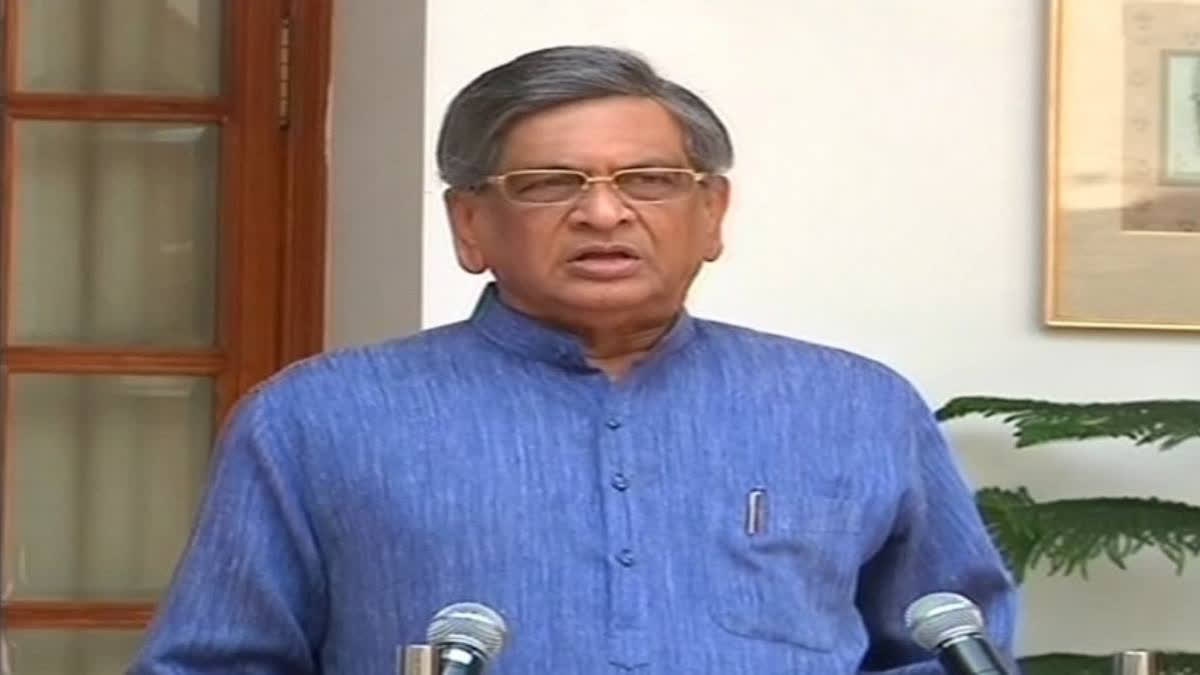Bengaluru: Former Chief Minister of Karnataka SM Krishna is remembered for his pragmatic leadership during one of the state’s most volatile periods--the Cauvery water dispute--known for transforming Bengaluru into a global IT hub, Krishna had faced the challenging task of managing the Cauvery river water-sharing issue with Tamil Nadu during his tenure from 1999 to 2004.
In 2002, amidst a severe drought and rising tensions, Krishna made headlines by refusing to release Cauvery water to Tamil Nadu. This decision was met with protests from Tamil Nadu, leading the state to approach the Supreme Court. Subsequently, the court directed Karnataka to release 1.25 TMC of water daily, sparking widespread protests, state-wide bandhs, and violence in Karnataka.
One of the most notable moments of Krishna’s leadership during this crisis was his six-day padayatra (protest march) from Bengaluru’s Rajarajeshwari Nagar to Mandya, covering 100 kilometres. Beginning on October 7, 2002, this symbolic march aimed to highlight Karnataka's plight and bring national attention to the water shortage faced by the state. However, Tamil Nadu viewed the move as provocative, leading to a contempt of court petition against Karnataka in the Supreme Court.
“Leadership is about making difficult choices. At that time, I chose to walk with the people of Karnataka to amplify their voices,” Krishna reflected in later years. Eventually, under intense pressure from the Supreme Court, Krishna’s government was forced to comply with the court’s directive. Acknowledging the court’s authority and prioritising the larger interests of the state, Krishna tendered an apology to the court and released water to Tamil Nadu. His decision was lauded by some as a practical resolution, but criticised by others, who believed Karnataka had caved in.
“Despite the challenges, Krishna balanced the court’s directives with the emotional and economic struggles of the state’s farmers,” noted a political analyst. Krishna’s tenure during the Cauvery crisis stands as a testament to his ability to navigate complex political and social challenges, while his actions--both bold and conciliatory--remain a significant chapter in Karnataka’s political history.
“The Cauvery crisis was one of Karnataka’s toughest moments, and Krishna’s leadership was both decisive and diplomatic,” says Farmer Union representative.



